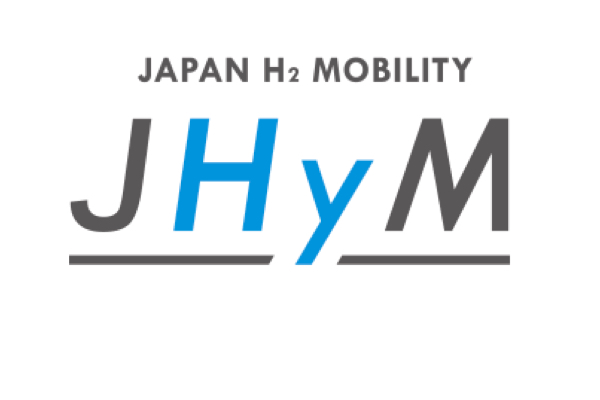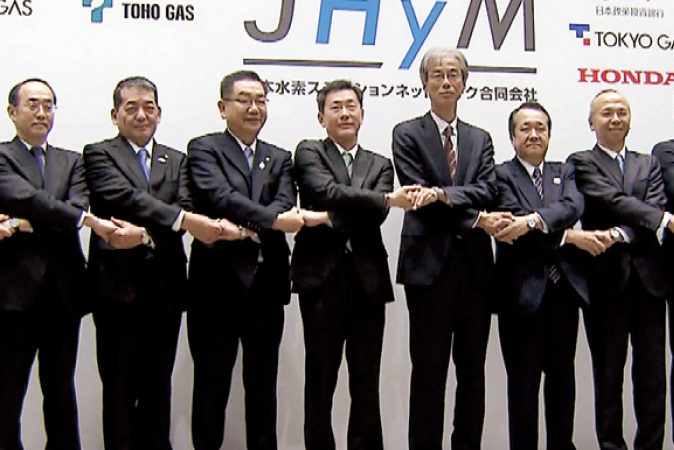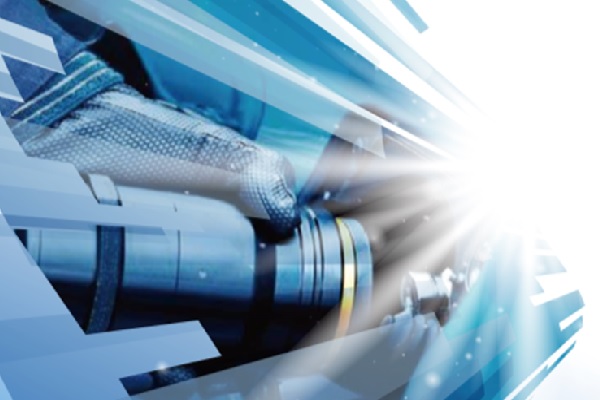About JHyM
History of JHyM Establishment
The government, working on prompts to utilize hydrogen as a next-generation energy source, designed a policy to promote the hydrogen supply infrastructure for Fuel Cell Vehicles (FCV) expansion in “The Strategic Road Map for Hydrogen and Fuel Cells” and “Basic Hydrogen Strategy” in order to build a social basis that should utilize hydrogen. Along with this initiative, private companies including *HRS companies, automobile manufacturers, financial investors and other stakeholders decided to cooperate. As the result, in February 2018, Japan H2 Mobility (JHyM) was established.
*HRS means Hydrogen Refueling Stations; HRS companies install and operate the stations.
JHyM’s VISION
To create virtuous cycle between FCV and HRS;
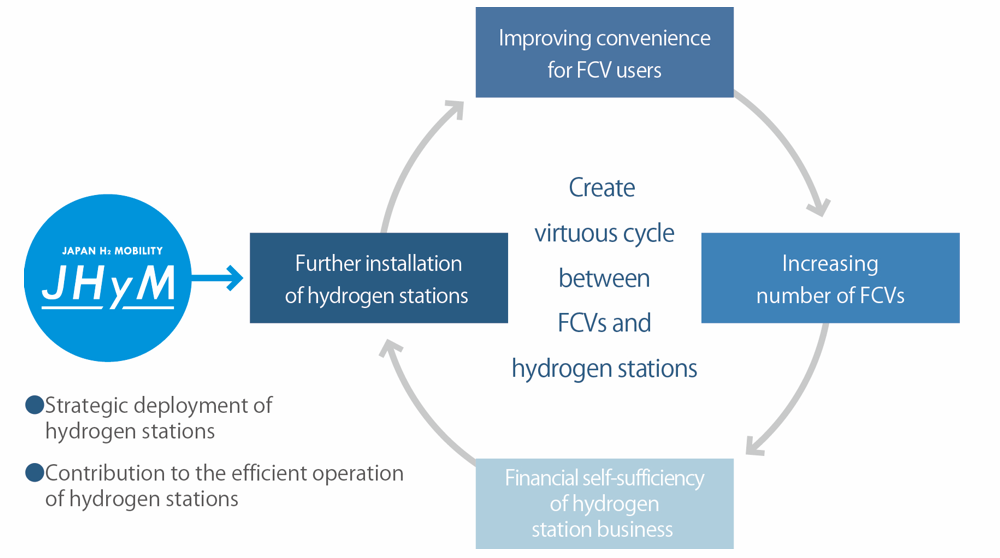
JHyM’s MISSION
Strategic Deployment of HRS
In the first five years of JHyM, with a view to popularizing FC passenger cars nationwide, we tried to raise the installation density of HRS in urban areas, and actively encouraged the installation of HRS in undeveloped areas.
Hereafter, in addition to this, our new policy is to steadily install HRS in locations where demand is expected, including demonstration of FC commercial vehicles (trucks, etc.).
Contribution to Efficient Operation of HRS
– Improvement of Convenience for FCV Users
Not only increasing the number of HRS, we will consider and implement expanding the number of operating days and hours of existing HRS and rebuilding for the purpose of increasing their capacity.
– Efforts forward the Profitability of HRS Business
In cooperation with other hydrogen consortiums, we will petition government agencies to review regulations related to HRS and contribute to cost reduction. In addition, we will strive to share measures to expand demand and best practices by leveraging the unique strengths of JHyM, where a wide variety of businesses gather.
Benefits for HRS Companies Participating in JHyM
JHyM’s schemes as below;
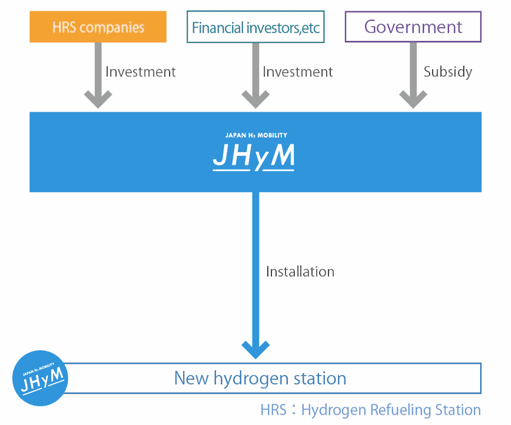
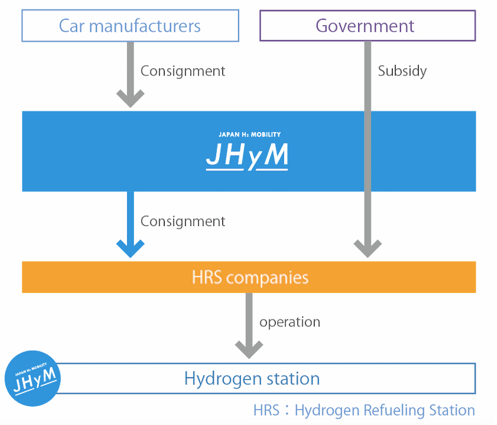
– Reduction of the Initial Investment in HRS Installation
In addition to subsidies from the Ministry of Economy, Trade and Industry’s “Hydrogen Supply Facility Installation Project for Fuel Cell Vehicles,” it is possible to reduce the initial investment in HRS installation by utilizing investments from financial investors.
– Reduction of HRS Operation Cost
In addition to subsidies from the Ministry of Economy, Trade, and Industry’s “Fuel Cell Vehicle New Demand Creation Activity Support Project,” by receiving consignment fee from JHyM, it is possible to gain a long-term support for HRS operation.
For small and medium-sized enterprises, JHyM gives more financial support.
JHyM’s Participation Requirement
- Install at least one new HRS*
- Pay annual fees to JHyM
*HRS with a prospect for financial self-sufficiency
From the Guideline to Construction
Each HRS companies should individually submit their HRS installation plans according to JHyM’s Annual HRS Development Planning Guideline formulated every fiscal year. After their plans approved, HRS companies and JHyM jointly apply for subsidies. HRS companies construct their HRS, and after completion JHyM owns them while HRS companies can operate them in their brand.

JHyM’s Annual HRS Development Planning Guideline
If you would like to view it, please contact info@jhym.co.jp.

